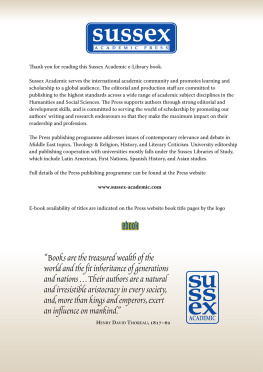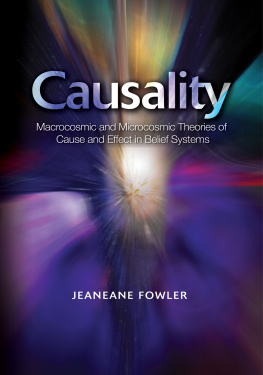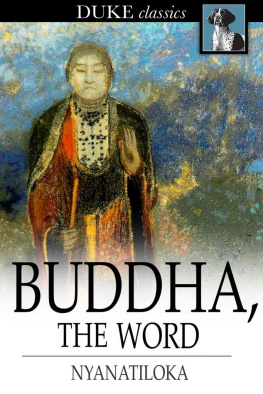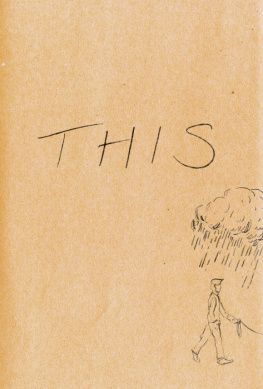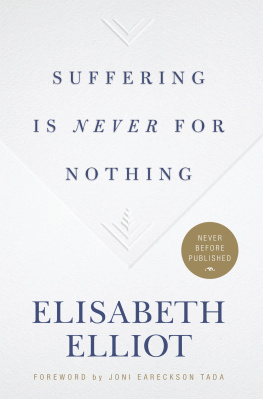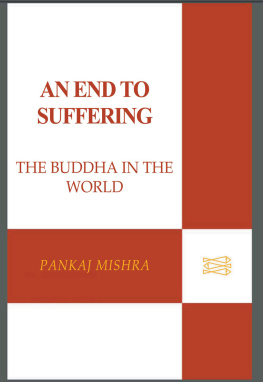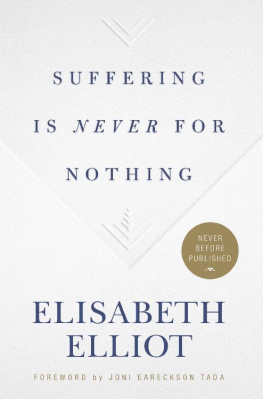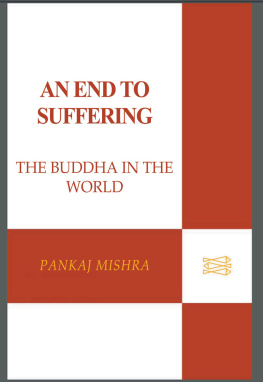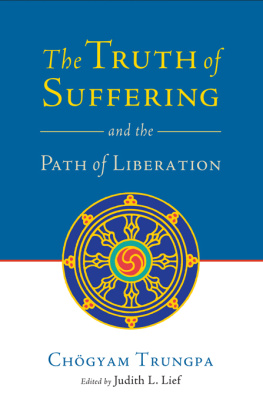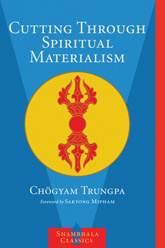Contents

Buddhism and the Coronavirus
The Buddhas Teaching on Suffering
The Sussex Library of
Religious Beliefs & Practices
This series is intended for students of religion, social sciences and history, and for the interested layperson. It is concerned with the beliefs and practices of religions in their social, cultural and historical setting. These books will be of particular interest to Religious Studies teachers and students at universities, colleges, and high schools. Inspection copies available on request.
The Ancient EgyptiansRosalie David
The Bhagavad Gita: A text and commentary for studentsJeaneane Fowler
BuddhismMerv Fowler
Buddhism and the Coronavirus: The Buddhas Teaching on SufferingJeaneane Fowler
Causality: Macrocosmic and Microcosmic Theories of Cause and Effect in Belief SystemsJeaneane Fowler
Chinese ReligionsJeaneane Fowler and Merv Fowler
Christian Theology: The Spiritual TraditionJohn Glyndwr Harris
GnosticismJohn Glyndwr Harris
HinduismJeaneane Fowler (published 1997, compact 192-page edition)
Hinduism: Beliefs & Practices: Major Deities and Social Structures (expanded edition)
Hinduism: Beliefs & Practices: Religious History and Philosophy (expanded edition)
Hindu GoddessesLynn Foulston
HumanismJeaneane Fowler
IslamDavid Norcliffe
The JewsAlan Unterman
The Protestant Reformation: Tradition and PracticeMadeleine Gray
SikhismW. Owen Cole and Piara Singh Sambhi
Tai Chi ChanJeaneane Fowler and Shifu Keith Ewers
Zen BuddhismMerv Fowler
ZoroastrianismPeter Clark
Of related interest
Chanting in the Hillsides: Nichiren Daishonin Buddhism in Wales and the BordersJeaneane Fowler and Merv Fowler
An Introduction to the Philosophy and Religion of Taoism: Pathways to ImmortalityJeaneane Fowler
Perspectives of Reality: An Introduction to the Philosophy of HinduismJeaneane Fowler
World Religions: An Introduction for StudentsJeaneane Fowler, Merv Fowler, David Norcliffe, Nora Hill and Diane Watkins
This book is dedicated to the outstanding, compassionate,
and loving carers at The Cedars at St Annes Nursing
Home in Chepstow, South Wales.
With deepest thanks for all they have done and continue
to do each day for those who come into their care.
Wendy Ballard | Gillian Lawrence |
Mariana Ungureanu | Lisa Greenwood |
Saloti Meli | Bethan Ayre |
Helen Burton | Maria Davies |
Maria Tribol | Anna Vigurs |
Alison Baldwin | Katrina Morris |
Buddhism and the Coronavirus
The Buddhas Teaching on Suffering
JEANEANE FOWLER

Copyright Jeaneane Fowler, 2021.
Published in the Sussex Academic e-Library, 2019.
SUSSEX ACADEMIC PRESS
PO Box 139, Eastbourne BN24 9BP, UK
Ebook editions distributed worldwide by
Independent Publishers Group (IPG)
814 N. Franklin Street
Chicago, IL 60610, USA
ISBN 9781789760682 (Paperback)
ISBN 9781782846970 (Epub)
ISBN 9781782846970 (Kindle)
ISBN 9781782846970 (Pdf)
All rights reserved. Except for the quotation of short passages for the purposes of criticism and review, no part of this publication may be reproduced, stored in a retrieval system, or transmitted, in any form or by any means, electronic, mechanical, photocopying, recording or otherwise, without the prior permission of the publisher.
British Library Cataloguing in Publication Data
A CIP catalogue record for this book is available from the British Library.
This e-book text has been prepared for electronic viewing. Some features, including tables and figures, might not display as in the print version, due to electronic conversion limitations and/or copyright strictures.
Contents
Preface and
Acknowledgements
As I sit here writing these words towards the end of October 2020, Wales, where I live, has just been notified that the whole nation will have to go into a second lockdown at the end of the current week. That lockdown will be for a minimum of two weeks, reflecting the case in so many parts of the United Kingdom. The stark fact is that Covid-19 never went away and as we approach the end of autumn and enter wintertime in the northern hemisphere, all the criteria the virus needs to multiply will be met. We will all move indoors, move closer to each other, and give the virus what it needs to pass on its millions of virus particles. The appetite for further lockdowns in the UK is dissipating as the weeks go by, irrespective of the consequences for many of those who may contract this virus, in particular those individuals in vulnerable groups. We have been relatively safe here in Monmouthshire in the southeast corner of Wales but that is no longer the case as the virus is reaching out to spread even here. We will have to deal with Covid-19 for many months to come and it is hoped that, as a consequence, humanity globally will take time to face the fact of pandemics of this nature and those that are sure to come our way in the future. And the cause of such pandemics, as I seek to show in this book, is humanity itself.
I was invited by Sussex Academic Press on 2 April 2020 to write this book. It was the day after my mothers burial with just four close family members at the graveside, given lockdown restrictions. I needed reflective time to ponder on so many questions about life, on the ways in which we live it, and on the strange and weird times into which we were quickly projected. The book has provided answers for me and hope it will do so also for those who read it. I am therefore very grateful for the opportunity to explore this topic and would like to thank the team at Sussex Academic Press for the suggestion, the scope to write the book in whatever way I wished, and the continued support while I worked. As the virus was subsiding in the summer months, I had a feeling that it would rise again very soon; and it did.
While not a practising Buddhist, I have taught Buddhism at undergraduate and postgraduate levels at the University of Wales, Newport, for many years. Because the teachings of early Buddhism transcend religion and reach out into more humanistic realms, its thought structures are not alien concepts rigidified to a certain ancient age, but are eternally relevant to what it is to be human. It is not necessary to be a Buddhist to understand the fluid reality of the Universe, or the shadowy nature of the self. And while suffering may seem a morbid foundation for Buddhist teachings, the Buddhas message is full of optimism. There are answers that Buddhism gives to why we suffer.
With prolonged lockdown there have been no libraries available for me to acquire valuable inter-library texts, but I have been fortunate to have help and support from my neighbour and friend, consultant anaesthetist, Dr Diane Watson. Diane provided me with a number of medical sources that made my work so much easier and I am very grateful. We all know how invaluable the care has been at the frontline of the National Health Service here in the UK and around the world and I want to highlight one particular area of that care because I came to understand it so well. Staff in care homes worked against all odds to provide care for residents residents who could no longer have visits from their families. The staff were very often left unprotected without efficient personal protective equipment for far too long. I was very fortunate that my mother died just before we were denied being able to visit her, and before she had to endure the traumas of the pandemic. I have dedicated this book to the carers at The Cedars at St Annes Nursing Home in Chepstow because I had first-hand experience of the incredible love and care that the twelve staff gave to my mother. That care was clearly evident in so many care home contexts throughout the whole of the UK and it was a privilege for my husband and me to witness such outstanding altruism.

